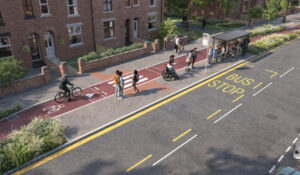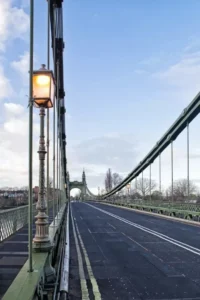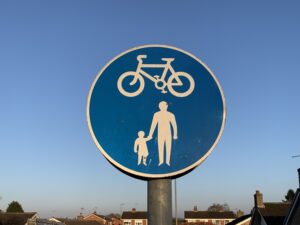Thirty-one counties, city regions and unitary authorities have been chosen for funding to level up their local bus services in the latest awards from the government’s bus transformation programme.
Including earlier awards, just under two-thirds of England’s population outside London will benefit from new investment to make their buses more frequent, more reliable, easier to understand and use, cheaper, or greener. Improvements will also include integrated ticketing and more bus lanes to speed up journeys.
The successful areas have been chosen because of their ambition to repeat the success achieved in London – which drove up bus usage and made the bus a natural choice for everyone, not just those without cars.
As the government stated in last year’s national bus strategy, Bus Back Better, areas not showing sufficient ambition, including for improvements to bus priority, would not be funded.
In the meantime, a further £150 million is being provided across England to maintain service levels as patronage continues to recover after the pandemic.
Areas among those set to receive funding today (4 April 2022) to help deliver on their Bus Service Improvement Plans (BSIP) include:
- Portsmouth
- Stoke-on-Trent
- Greater Manchester
- West Yorkshire
- West Midlands
- Liverpool City Region
- North East and North of Tyne Combined Authorities
- Reading
- Norfolk
- Luton
- York
- Warrington
Mayoral combined authorities will also receive money for buses from the £5.7 billion City Region Sustainable Transport Settlements (CRSTS), which are also confirmed today.
Improvements in the pilot area, Cornwall, will start next week, funded by £23.5 million from the government.
From 10 April, most bus fares in the county will be slashed, with short hop fares down by 20%, longer journeys costing up to 40% less and some bus passes cut by almost 50%.
Passes for unlimited bus travel across Cornwall will cost just £5 per day (down from £9 now) or £20 per week. Town zones offer great value travel for just £2.50 per day or £10 for a week. For commuters travelling 5 days a week, that works out at just £2 a day or £1 per journey.
All tickets will be available on all operators’ services and in the summer contactless tap-on and tap-off payments will be introduced and buses will connect easily with the main rail line at stations across the county.
Transport Secretary Grant Shapps said: “Buses are the most popular way of getting around in this country – but for too long people outside of London have had a raw deal. The investment we’re making today to ramp up the bus revolution will drive down fares at a time when people’s finances are tight and help connect communities across England.”
This funding follows the announcement last week of £200 million for almost 1,000 new electric or hydrogen buses, bringing the total funded in England under this government to 2,000.
A further 600 green buses have been funded in Scotland, Wales and Northern Ireland from the block grant to the devolved administrations, putting the UK on target to meet its commitment of 4,000 zero-emission buses.
The government is today also confirming £5.7 billion in funding to level up local bus, tram, rail, walking and cycling networks in England’s 8 city regions.
The CRSTS, first announced in the autumn statement, give the mayors of our largest cities long-term certainty to plan and deliver transformational improvements to their local transport systems.
The money will help deliver, among other things, a new mass transit network in West Yorkshire, improvements to rail services in the Tees Valley, a flat fare on buses in Greater Manchester and bus rapid transit corridors in the West Midlands. Letters have been sent to the metro mayors outlining the funding.
The announcements, along with the funding of zero-emission buses and the bus elements of the increased CRSTS, form part of the £3 billion for bus transformation announced in 2020.
Around £2 billion has also been paid to support bus and light rail services during the pandemic.
The government is also today confirming that tram and light rail operators across the Midlands and the North will also benefit from over £37 million of government support including:
- Manchester (£20.5 million)
- the North East Nexus (£7.3 million)
- the West Midlands (£2.7 million)
- Sheffield (£4 million)
- Nottingham (£3.3 million)
All will receive a share of the government’s multimillion-pound pandemic recovery package.
This money will be used to ensure light rail services continue to run and millions of passengers can continue to get around as the country emerges from the pandemic.
Also, confirmed light rail recovery funding allocations come from the wider £150 million package announced by government to support vital bus and light rail services across the country.
























